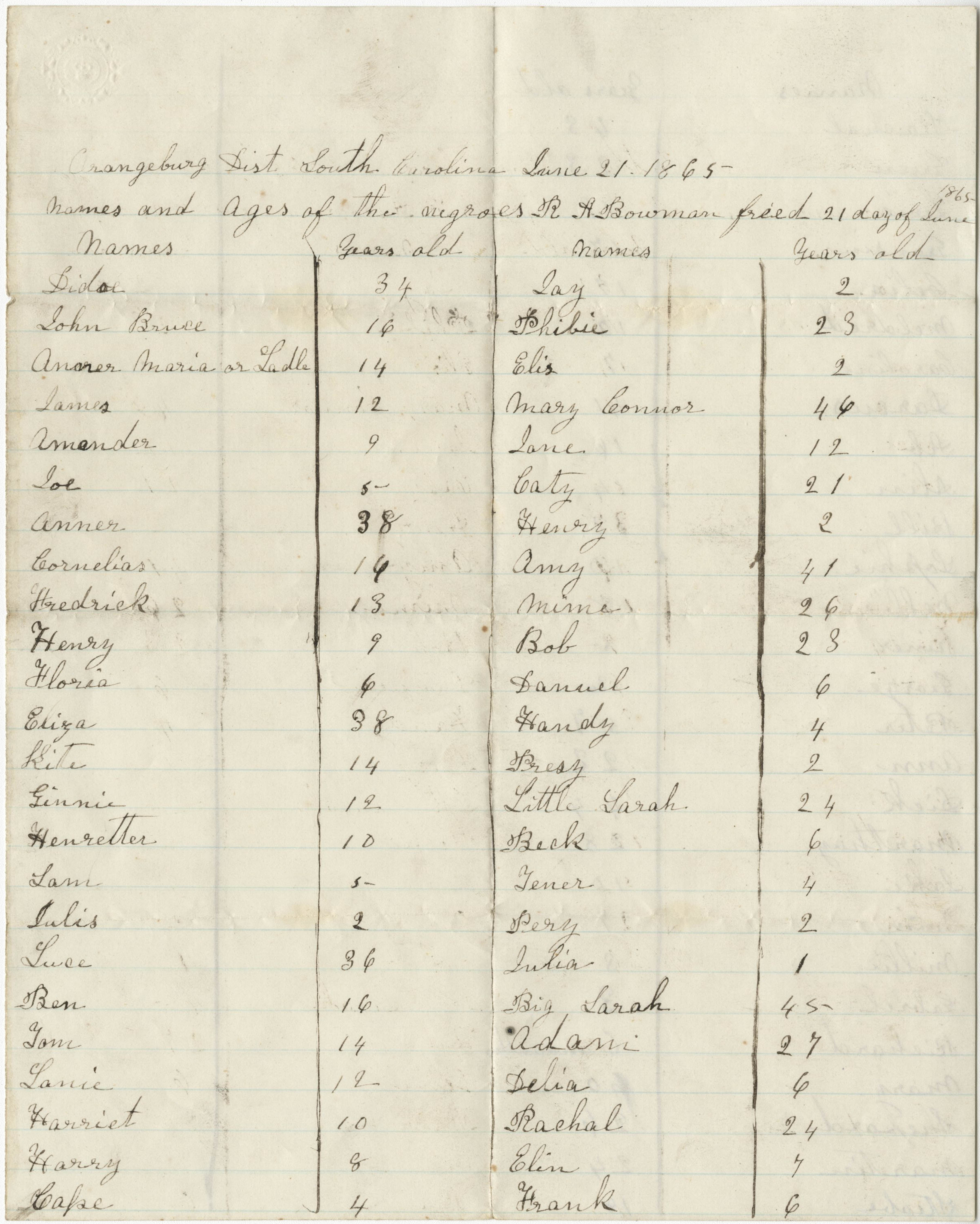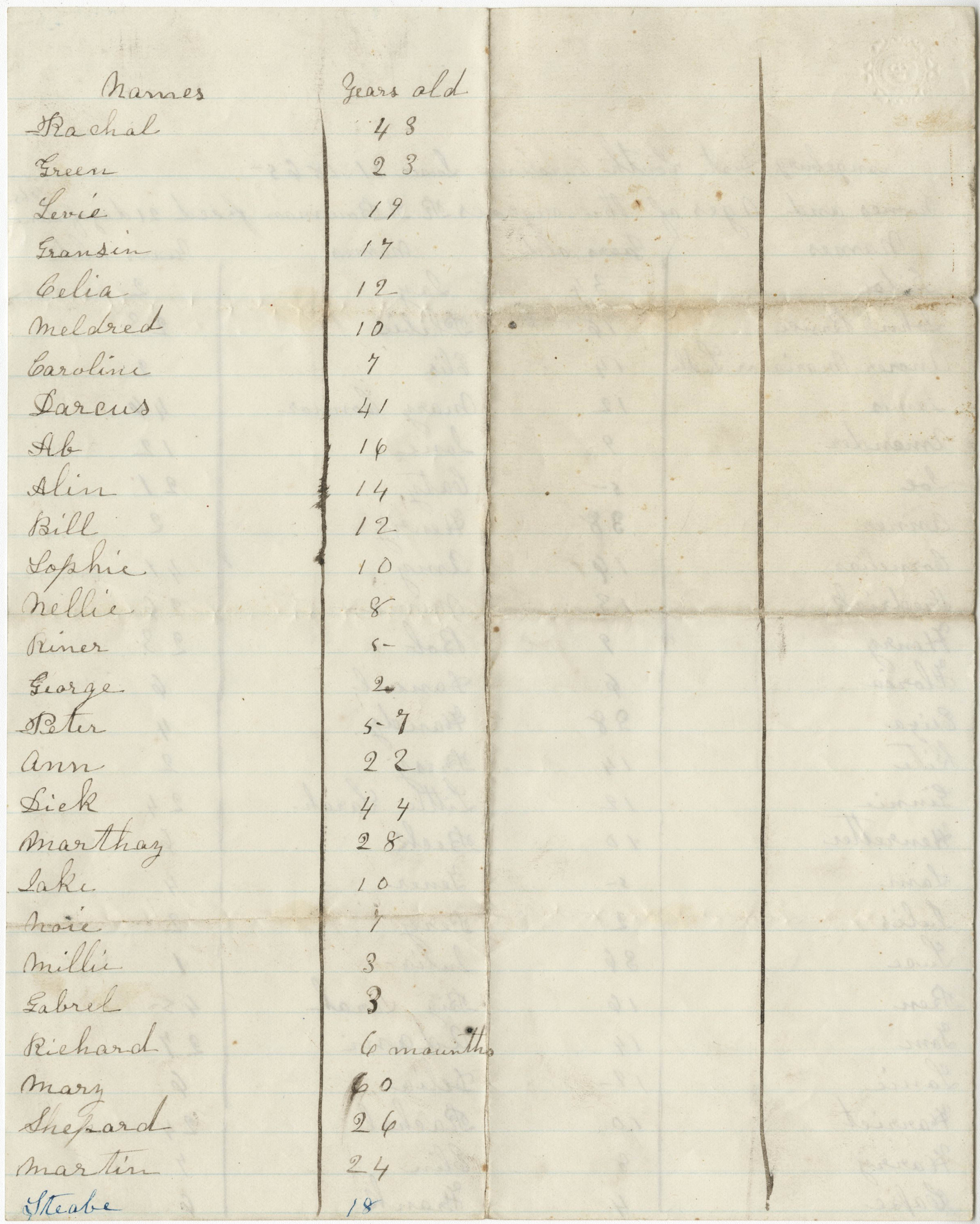Names of 66 formerly enslaved persons, aged six months to sixty years, emancipated on June 21, 1865. Over two years after President Lincoln issued the Emancipation Proclamation and five months before South Carolina ratified the Thirteenth Amendment abolishing slavery, people like Dido, John Bruce, Anorer Maria, James, Amander, and Joe embarked on a journey to forge citizenship, transform the terms by which their labors were compensated, and negotiate solidarity and identity in the post-emancipation era.
Bowman family papers, South Carolina Historical Society


